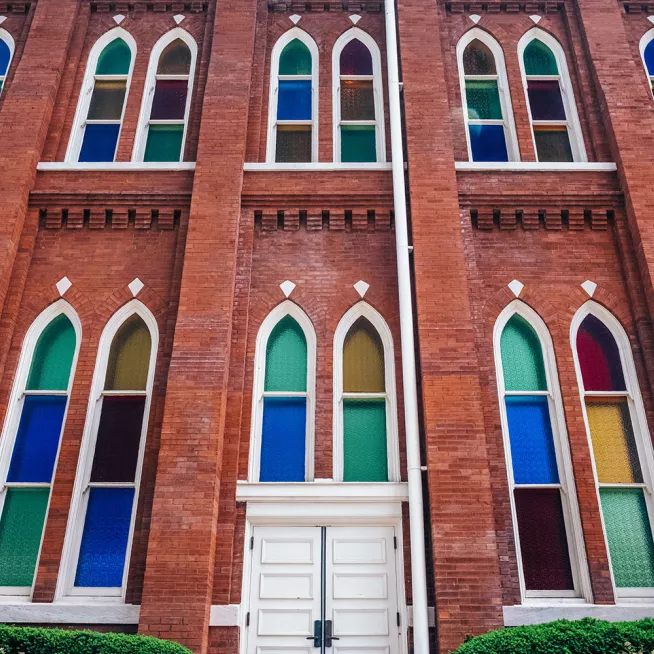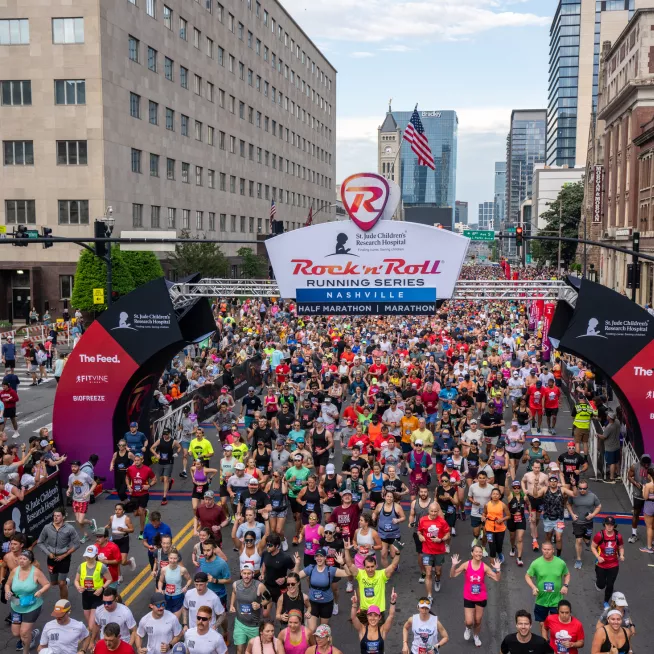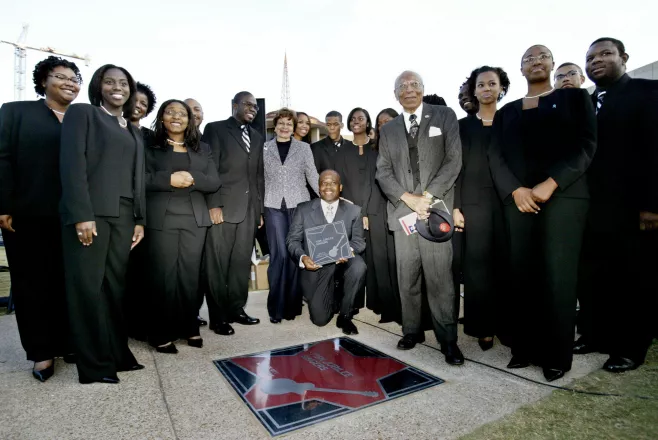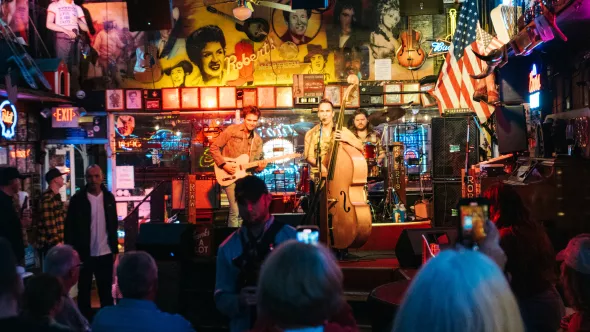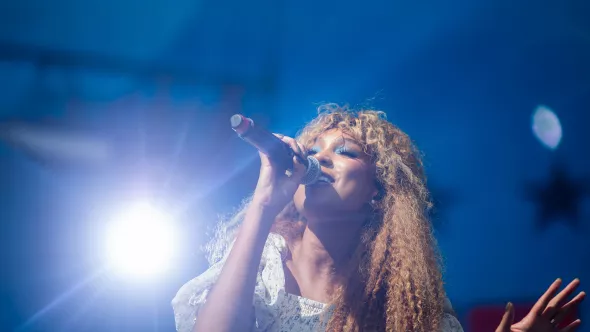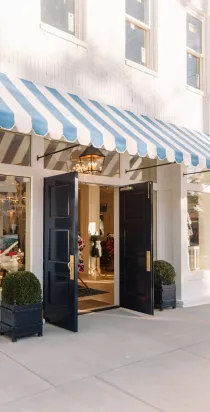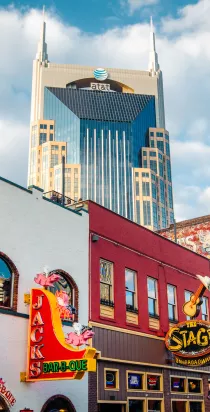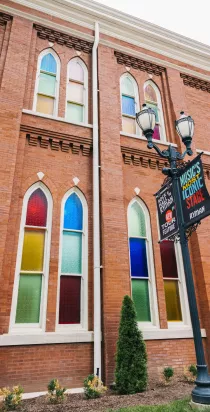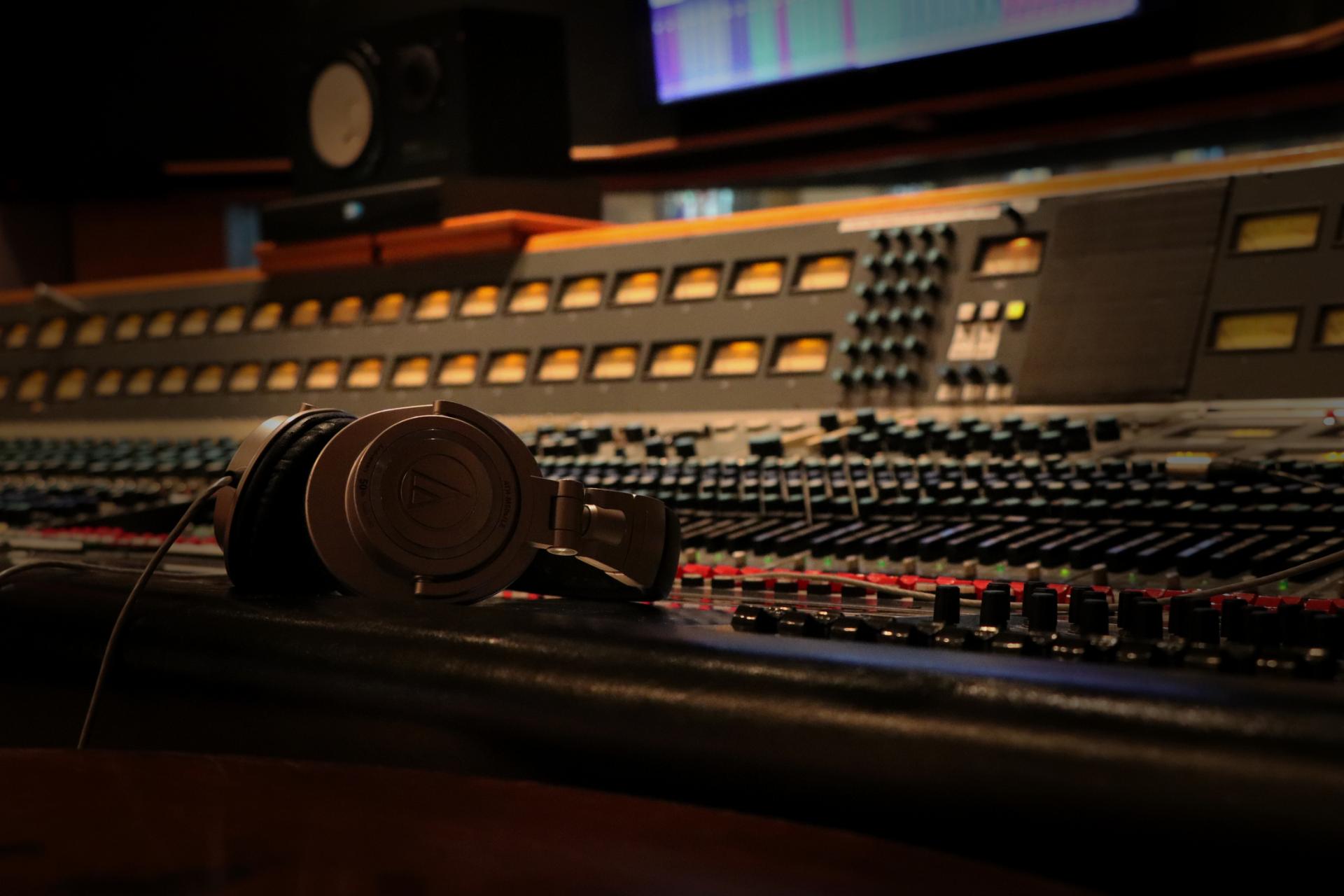
The Story of Nashville's Music History
Breadcrumb
From its very beginnings, Nashville grew from a foundation built on music. Music has been the common thread connecting the soul of the city and its people. Visitors have ventured here to experience the music that weaves a fundamental pattern in its cultural, business, and social fabric.
Early Roots of Nashville's Music Scene
Nashville, known as "Music City," has long been a vibrant hub for music, a reputation that began to take shape as early as the late 1700s. The city's first settlers celebrated their arrival on the shores of the Cumberland River with fiddle tunes and buck dancing. Nashville’s first "celebrity," the frontiersman and Congressman Davy Crockett, was renowned for his colorful stories and his fiddle playing, setting the stage for the city's musical legacy.
By the 1800s, Nashville had become a center for music publishing. One of the city's earliest musical triumphs came with the Fisk Jubilee Singers from Fisk University, whose 1871 tour raised funds to support the school's mission of educating formerly enslaved people. Their performance for the Queen of England helped establish Nashville’s global reputation as a city of music. This cultural milestone marked the beginning of Nashville’s pivotal role in shaping American music.
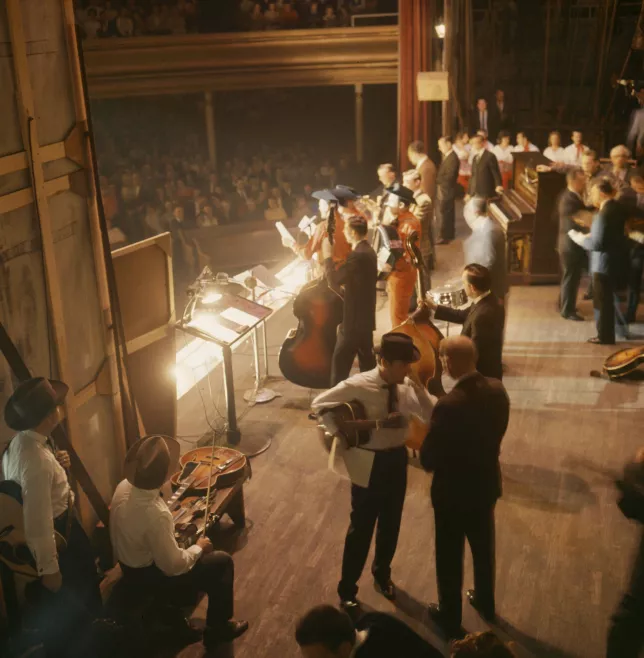
NASHVILLE'S HISTORIC MUSIC VENUES
As the 20th century unfolded, Nashville's music scene continued to grow. During the Depression, the city saw a thriving music scene, with speakeasies and nightclubs on Jefferson Street hosting rhythm and blues, jazz, and popular orchestras. Legendary figures like Jimi Hendrix and Etta James made their mark in the clubs along Jefferson Street, solidifying Nashville's status as an important center for R&B.
The Ryman Auditorium, Nashville's most famous music venue, was built in 1892 by riverboat captain Tom Ryman and originally called the "Union Gospel Tabernacle." When it opened, it was the largest auditorium south of the Ohio River and quickly became known as the "Carnegie Hall of the South," attracting musicians and fans worldwide. It has earned Pollstar magazine's prestigious "Theater of the Year" award fourteen times for being the best auditorium in the nation to experience live music. One of the first musical performances in the building was by the Fisk Jubilee Singers, and after Captain Ryman died in 1904, the venue was renamed in his honor. From 1904 to 1955, Lula Naff managed the Ryman, booking top acts like Marian Anderson, Caruso, Sandra Bernhardt, Louis Armstrong, John Philip Sousa, and Nat King Cole. In 1943, she brought the Grand Ole Opry to the Ryman every weekend, where it stayed until 1974. During this time, Country Music Hall of Fame stars such as Hank Williams, Johnny Cash, Patsy Cline, George Jones, Dolly Parton, Charley Pride, and Elvis performed on the Opry stage for the first time. A significant moment in Ryman's history came in December 1945, when Bill Monroe played his mandolin with Lester Flatt on guitar, Chubby Wise on fiddle, and Howard Watts on bass, creating a new genre of bluegrass music on the famous stage. Banjo player Earl Scruggs later joined the group. Today, the Ryman celebrates more than 130 years as one of the most iconic concert venues in America, where stars who usually perform in arenas and stadiums still grace its 2,362-seat venue. Notable performers include Bruce Springsteen, Garth Brooks, Paul Simon, The Foo Fighters, Lizzo, Jack White, James Brown, Taylor Swift, and Harry Styles. The Ryman is also open for daily tours, allowing visitors to stand on its legendary stage, watch a film about its history, see the clothes of Opry performers, and explore Ryman memorabilia.
In 1925, the establishment of the radio station WSM and its launch of the broadcast called the Grand Ole Opry further secured Nashville's reputation as a musical center and sparked its durable nickname of Music City. The Opry, still staged live weekly, is America's longest-running radio show, in continuous production for over 100 years. It ignited the careers of hundreds of country stars and lit the fuse for Nashville to explode into a geographic center for touring and recording. The modern-day empire of Music Row, a collection of recording studios, record labels, entertainment offices, and other music-associated businesses, populates the area around 16th and 17th Avenues South.

How the Legacy Continues
Nashville has long been known as the "Songwriting Capital of the World," drawing songwriters from around the globe to learn the craft and share their passion. The famous Bluebird Cafe showcases songwriters performing their original music in an intimate "in the round" setting, where they share the stories behind their songs. The Nashville Songwriters Association International (NSAI), headquartered in the city, fosters the art of songwriting and works to protect artists' rights. The annual Tin Pan South Songwriters Festival puts these songwriters in the spotlight, with over 300 performers showcasing their talents across multiple venues over five days.
In recent years, cable television has broadcast Music City's stars and music to the world. CMT has brought country music to new levels of acclaim, and after ABC's initial run, it saved the Nashville TV show, becoming its new home for the last two seasons, with much of the show filmed in Music City. Nashville also hosted the gospel music series Bobby Jones Gospel on Black Entertainment Television, which was cable's longest-running program before ending in 2017 after 37 successful years.
Nashville has become a hub for a wide range of music genres, including pop, rock, bluegrass, Americana, jazz, classical, contemporary Christian, blues, and soul. Rolling Stone even gave Nashville the title of "Best Music Scene." Artists like Robert Plant, Post Malone, Adele, Ed Sheeran, and Michael Bublé have come to Music City to write and record, while names such as Kings of Leon, Kristin Chenoweth, Justin Timberlake, The Black Keys, Michael McDonald, India.Arie, Keb' Mo', Sheryl Crow, Paramore, and Jack White have chosen to make Nashville their home.
The city is also home to United Record Pressing, North America's largest volume-producing vinyl record plant. Since opening in 1949, it has pressed records for legends such as Miles Davis, Bob Dylan, The Beatles, Beyoncé, Justin Timberlake, and Ludacris.
Anchoring the downtown end of the recently designated Music Mile is the Schermerhorn Symphony Center, home to the renowned, GRAMMY-winning Nashville Symphony. This symbolic stretch of roadway connects the Symphony Center with Music Row, vibrant entertainment venues on Demonbreun Street, the Frist Art Museum, the Country Music Hall of Fame and Museum, the Music City Walk of Fame, and the Bridgestone Arena. The Music Mile perfectly illustrates how Nashville's music is woven throughout its business, cultural, and entertainment sectors.
Live music can be heard and seen every day and night of the week in Nashville, especially in the world-famous honky tonks on Broadway, which offer free live music 365 days a year. With over 180 live music venues ranging from large arenas and concert halls to small clubs, the city offers nearly every genre of music, solidifying its reputation as the city where "music calls home." For over 200 years, Nashville's connection to music has been unmatched, proving its place as Music City, where music is written, recorded, and performed daily.



